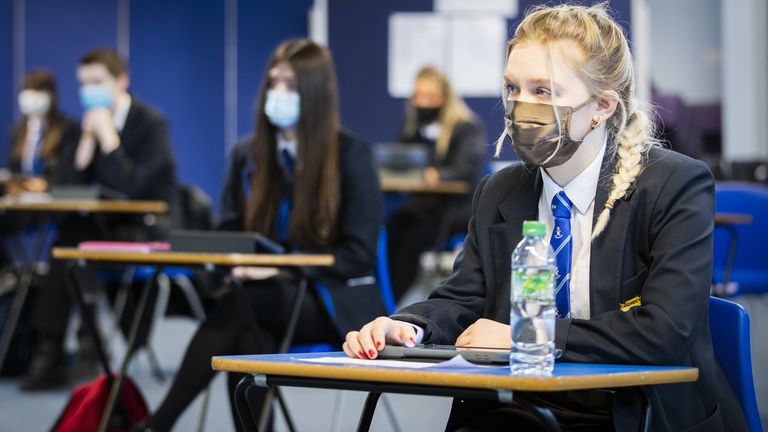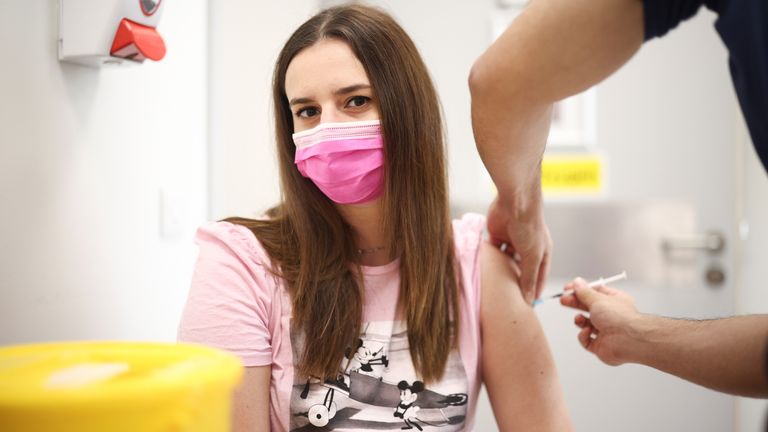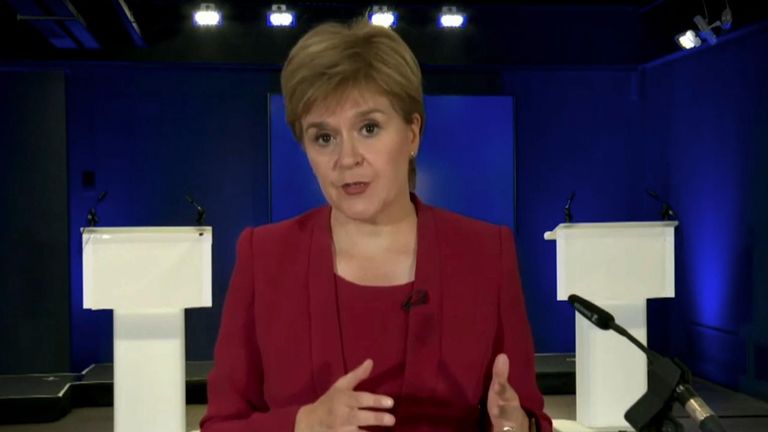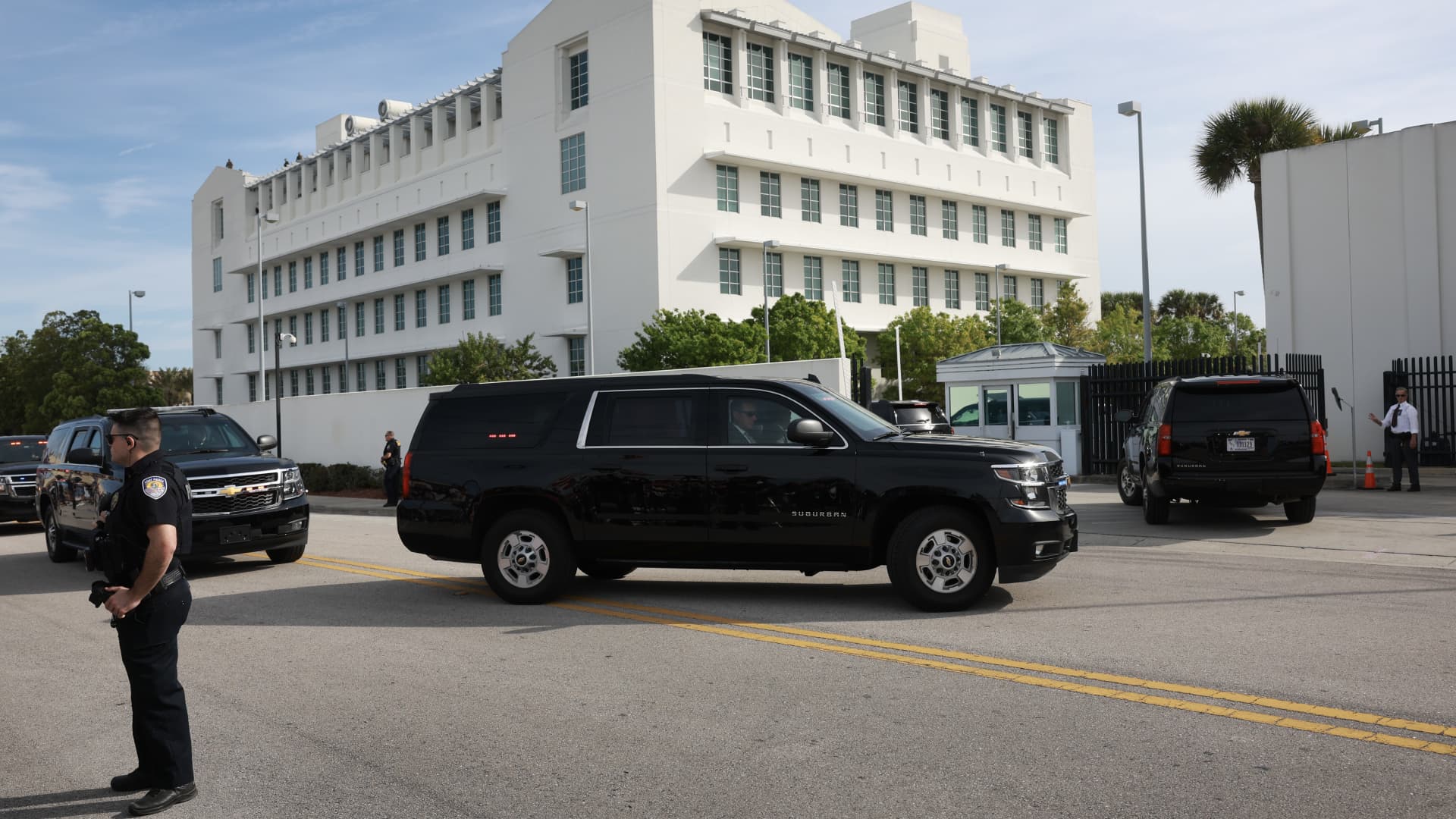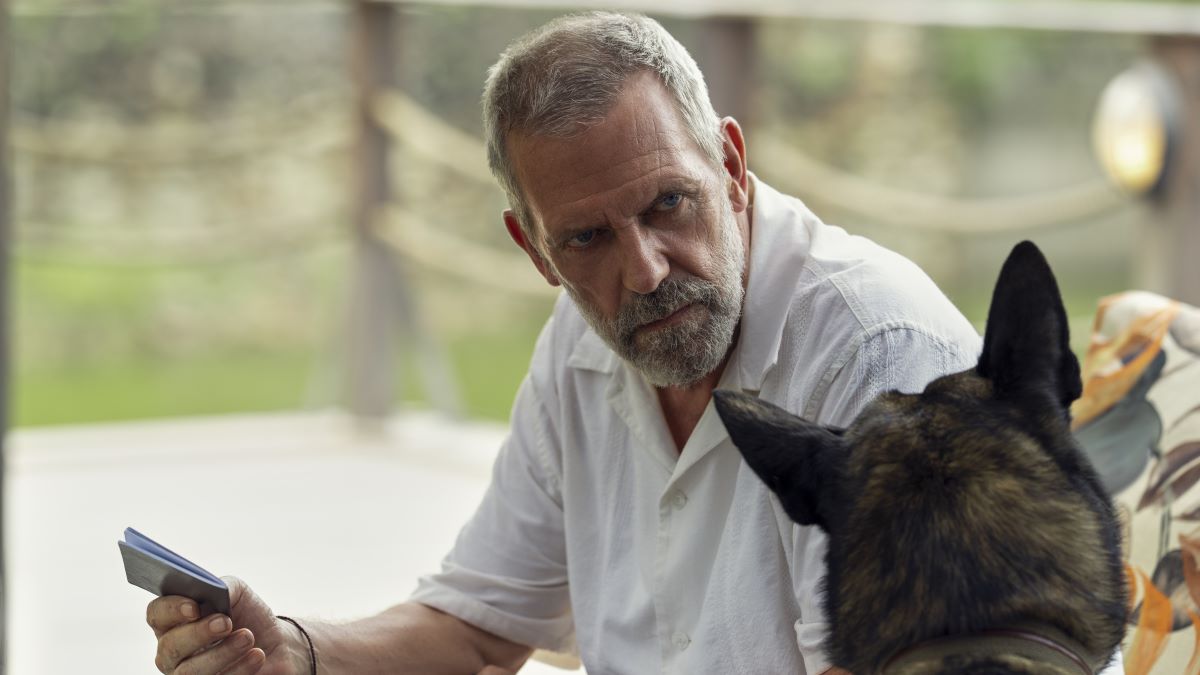The government is expected to announce the offering of a coronavirus vaccine to some 1.4 million teenagers “imminently”, a minister has confirmed.
Speaking to Kay Burley on Sky News, universities minister Michelle Donelan said Number 10 was awaiting advice from the Joint Committee on Vaccination and Immunisation (JCVI), which is assessing whether all 16 and 17-year-olds should receive the jab, and that an announcement would be made “shortly”.
The change in policy was first hinted at by Scottish First Minister Nicola Sturgeon on Tuesday as she announced that the Scottish government and the UK, Welsh and Northern Irish governments are “in the same position” in expecting updated recommendations for 16 and 17-year-olds “in the next day or so”.
“We haven’t announced that, what we are doing is waiting for the JCVI announcement,” Ms Donelan told Sky News.
“At every stage throughout the pandemic we have adopted their advice on this, they are the experts of course when we are determining the vaccine rollout and we will await their imminently announcement shortly.”
She then clarified: “We are awaiting the feedback from the JCVI and then we will update accordingly, so we haven’t actually had a change of heart, there’s been no policy announcement, we’re awaiting that JCVI announcement which we’re expecting imminently, and then we’ll make an announcement.”
The vaccine is already available to children aged 12 and over if their health leaves them at higher risk, or if they live with an immunosuppressed person.
Ms Donelan did not answer whether parental consent may be required for teenagers to accept the offer of a jab.
And pushed on whether 18 to 30-year-olds could be offered cash incentives to take up the vaccine, she added that “everything is on the table”.
The expected move comes as NHS data to 25 July shows more than 220,000 children in England have already had a COVID-19 vaccine.
The Pfizer/BioNTech coronavirus vaccine has been approved for use in children aged 12 to 17
But there has been significant debate over whether younger individuals should be offered the jab.
Some scientists say it would prevent further disruption to schooling in the next academic year, but other individuals have suggested that – as children are at a lower risk of serious illness from the virus – it would not be beneficial.
Vaccines minister Nadhim Zahawi announced in the Commons in July that those under the age of 18 with certain health conditions or living with someone who is immunocompromised would be eligible for the jab.
This, he said, would also include those approaching their 18th birthday.
Mr Zahawi noted at the time that the vaccine experts who advise the government, the JCVI, were keeping the option of offering the vaccine to children under constant review.
The JCVI previously said in July that “the minimal health benefits of offering universal COVID-19 vaccination to children do not outweigh the potential risks” as coronavirus rarely causes severe disease in children without underlying health conditions.
Symptoms are “typically mild” in children, the JCVI said, and as of March 2021, fewer than 30 children had died because of the virus.
Professor Paul Elliott, director of the React programme, said children should be vaccinated if they are offered the chance to be as a surge in infections to mid-July was being “driven” by younger people.
“Clearly what’s important now is that as many people who get offered the opportunity to have the vaccination should take it,” he told Sky News.
Speaking about the React study, he added: “The highest rates of infection was in the 13 to 24-year-old group, and the increase that we saw going up to mid-July was being driven from these younger people.
“As you say, there is a suggestion that maybe 16 and 17-year-olds will be offered the vaccine, in which case, I think it’s important that people should take that up if offered.”

